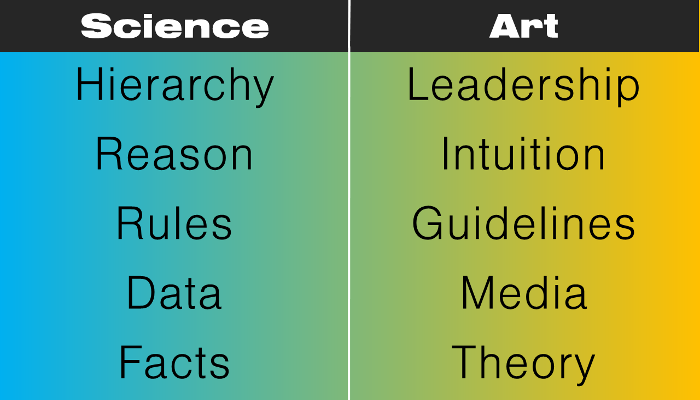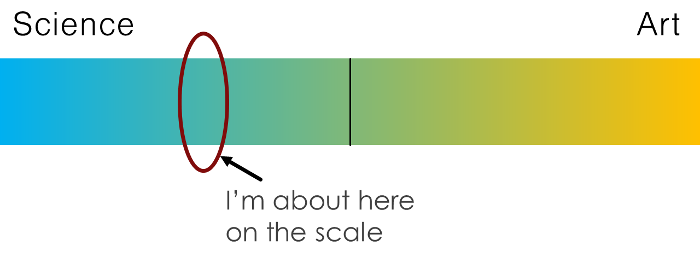You’ve done the research. Upper management has approved your proposal to bring storytelling into your organization. Congrats, the easiest part of your journey is over. Now comes the hard part–choosing a business storytelling partner to help you.
The first indication of trouble arrives after your Google search for “business storyteller” sends you wading through its 12,000 results–none of which describe business storytelling the same way. Some sites approach the topic from an entertainment-industry perspective, some extoll the virtues of mythology, and others base their work on brain science. Some business storytellers use story as a tool for personal development, sales, leadership, or marketing. The differences vary so wildly that you’re left with a dizzying question, “How do I find a business storyteller that fits my company’s needs?”
A storyteller’s approach falls between two ends of a continuous spectrum: art and science. The distinction offers a way to evaluate where business storytellers sit between the artists, who view storytelling spiritually, and the scientists, who see it canonically.

Let’s take a closer look:
- Scientists study facts; Artists practice theory
- Scientists love data; Artists love media
- Scientists follow rules; Artists work within guidelines
- Scientists rely on reason; Artists use intuition
- Scientists believe in hierarchy; Artists believe in the qualities of leadership
Before it can develop employee storytelling skills, a company must choose a story partner that complements its corporate culture. So, which part of the Science/Art spectrum best represents yours?
Oh, and if you hadn’t guessed by it now, I majored in Science and minored in Art. Or, on the Science/Art scale, I fall about here:
